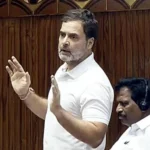As California’s political landscape grapples with the somber loss of Democratic Senator Dianne Feinstein, it also finds itself immersed in discussions about the future of her now-vacant Senate seat.
Senator Feinstein had already declared that she wouldn’t seek re-election in 2024, setting the stage for a competitive election to determine her successor. However, her passing has added a new layer of complexity, compelling Democratic Governor Gavin Newsom to make the politically challenging decision of appointing a replacement to serve the remainder of her term.
This appointment has the potential to disrupt California’s high-profile Senate primary, featuring prominent Democratic Representatives Adam Schiff, Katie Porter, and Barbara Lee, all vying for the seat in the upcoming all-party primary in March.
With the looming threat of a government shutdown, Governor Newsom may face pressure to expedite the selection process, providing Democrats with an additional vote to pass critical spending legislation. Senate Majority Leader Chuck Schumer has already engaged in discussions with Newsom, emphasizing the urgency of filling the vacant seat, which currently leaves Democrats with a precarious 50-49 majority.
Sources close to Newsom have indicated that an interim appointment for Senator Feinstein’s seat will be announced in the coming days. However, it’s worth noting that Newsom has been vocal about his reluctance to make this decision, especially given his previous appointment of Democrat Alex Padilla to fill Kamala Harris’s Senate seat in 2020.
Backlash ensued over the appointment of Padilla, a Latino man, to replace Harris, the Senate’s only Black woman at the time. In response, Newsom pledged to select a Black woman for any future vacancies. This pledge was widely interpreted as an acknowledgment of Barbara Lee as a potential candidate. Newsom’s advisers suggested that he might have chosen Lee had Feinstein resigned during her earlier health challenges.
However, Newsom made this commitment more than two years ago, long before Feinstein announced her decision not to seek re-election, and before any candidates had entered the race to replace her. Moreover, in a recent appearance on NBC News’ “Meet the Press,” Newsom indicated that his selection would be an “interim appointment,” implying that the appointee would serve only for the remaining term and not run for a full term. Nevertheless, he reiterated the intention to appoint a Black woman.
Governor Newsom’s announcement of this interim appointment incited a strong response from Barbara Lee, who publicly criticized her fellow Democrat. Lee argued that appointing a Black woman to the Senate seat on a temporary basis would amount to mere tokenism and be disrespectful to the countless Black women who have significantly contributed to the Democratic Party’s electoral successes.
This criticism surprised many California political observers, including Lee’s allies running a super PAC supporting her Senate campaign. The controversy led to the resignation of two well-known California Democratic operatives from the super PAC, as they also served as advisers to Governor Newsom and felt compelled to take sides.
As it stands, Representatives Schiff and Porter maintain substantial leads over Lee in polling and fundraising, making an appointment seem like Lee’s best chance to secure the Senate seat. However, supporters of Schiff and Porter argue that elevating a candidate polling third before voters have their say would be fundamentally unfair.
Governor Newsom has expressed his frustration with the incessant lobbying regarding Senator Feinstein’s seat, which has been relentless and all-encompassing. Regardless of his eventual appointment, California’s “jungle primary” system ensures that the two leading candidates from any party in the March primary will advance to the general election. This means that two Democrats may compete in November, considering the state’s liberal lean.
Furthermore, any Newsom appointment could trigger a cascade of political reshuffling in California, where open Senate seats are exceptionally rare. Candidates are already vying for the House seats vacated by Schiff, Porter, and Lee as they pursue Senate bids. Notably, Katie Porter’s district is particularly competitive.
Various names of Black women have been floated as potential appointees, including California Secretary of State Shirley Weber, San Francisco Mayor London Breed, Los Angeles County Supervisor Holly Mitchell, and nonprofit executive Lateefah Simon, who is presently running for Barbara Lee’s House seat.
Governor Newsom also has the option to choose someone not currently holding elected office, with names like former Governors Jerry Brown and Arnold Schwarzenegger, or former Senator Barbara Boxer being mentioned. However, such high-profile choices would not align with Newsom’s commitment to appoint a Black woman, should he decide to uphold it.
Currently, individuals close to the governor and the candidates are hesitant to delve into the political ramifications of Feinstein’s passing. Instead, the focus remains on honoring her legacy during this period of mourning.
Senator Feinstein’s passing leaves an indelible mark on California’s political landscape, prompting critical decisions that will shape the state’s political future. As Governor Newsom navigates these challenging waters, the nation watches closely to see who will step into the formidable shoes of Dianne Feinstein.
Image Source: Google











